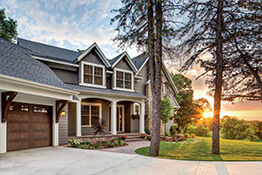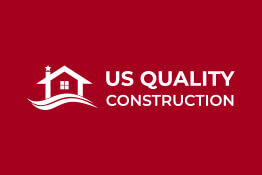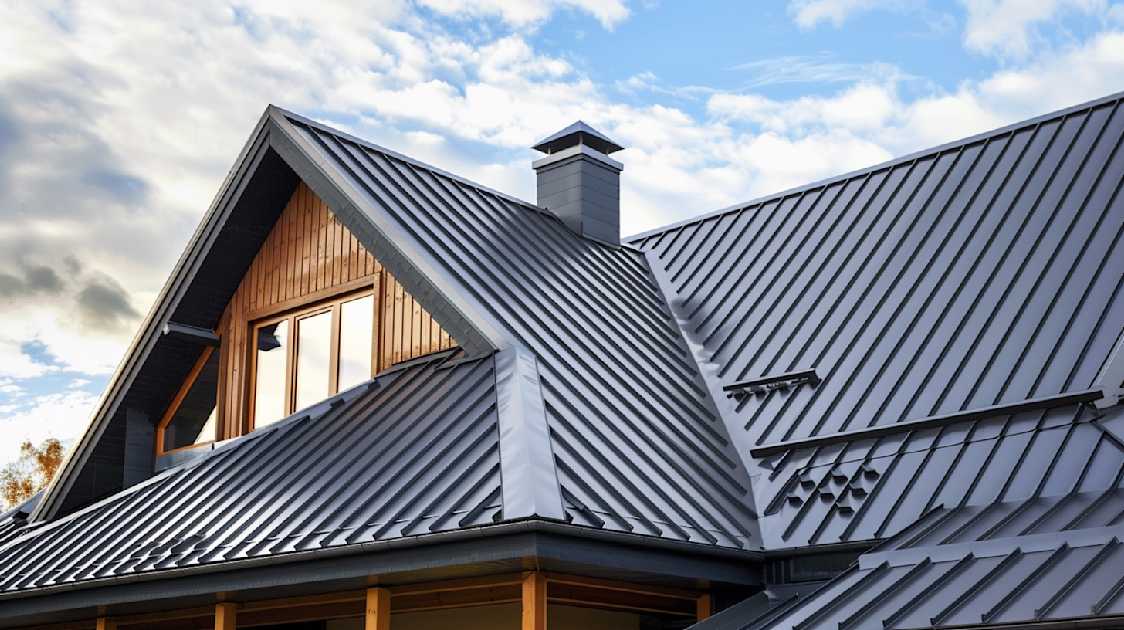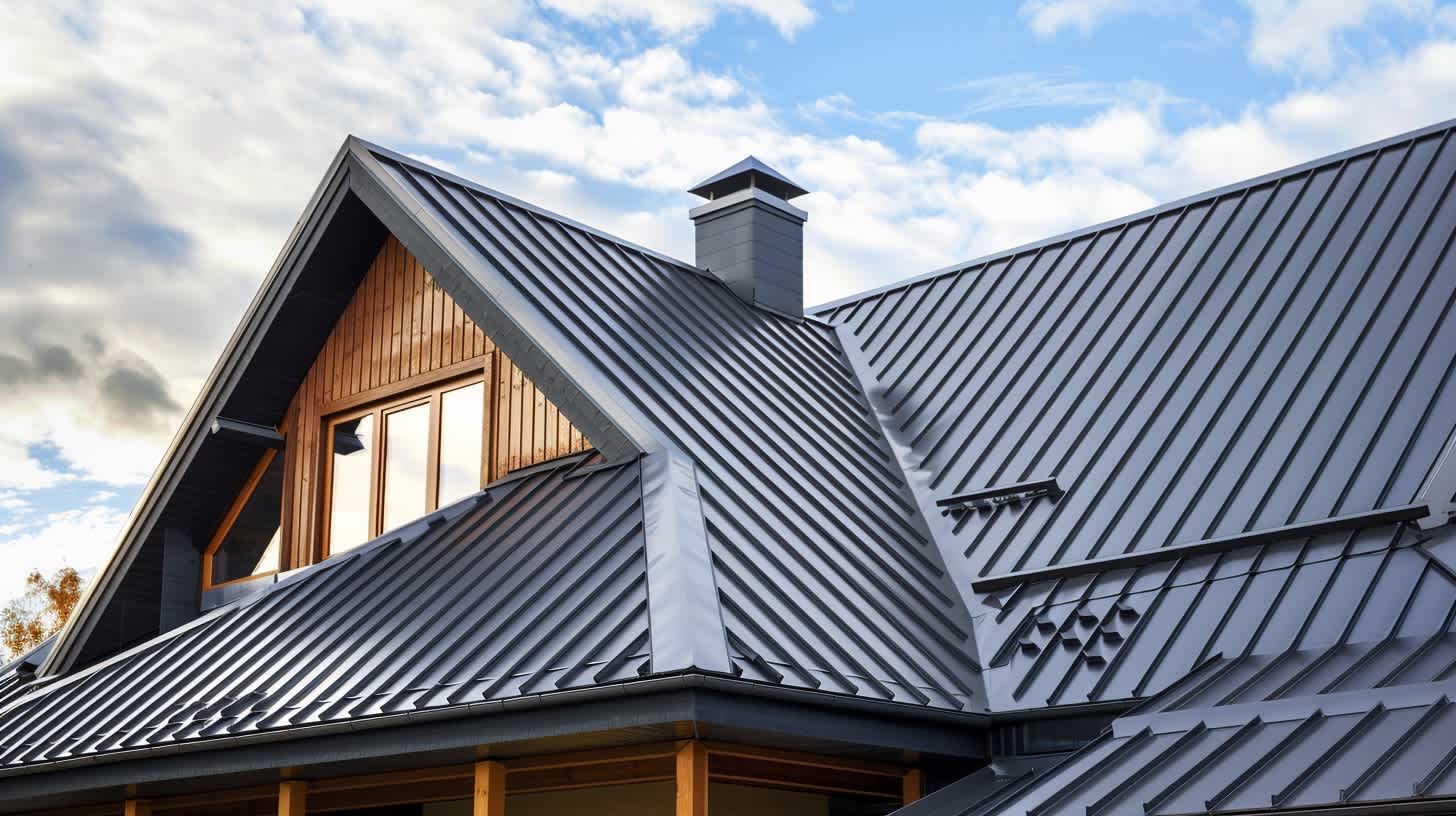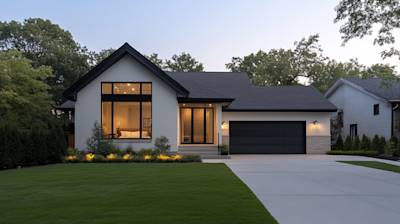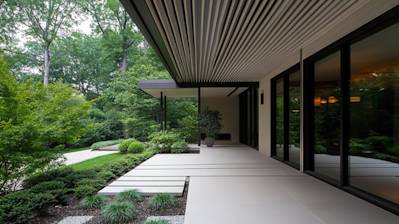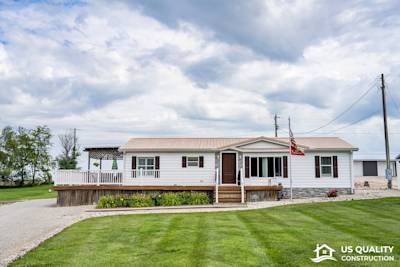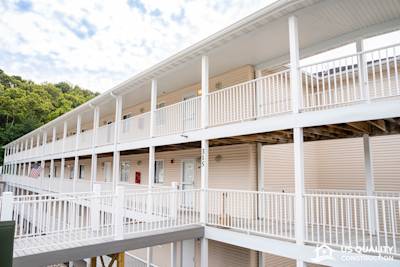As we become more environmentally conscious, the need to use more sustainable and efficient products grows. One area where this progress has been particularly seen is in roof construction, with a shift towards materials that are greener and last longer. Metal roofing is a perfect example. Whether you are constructing a new home or contemplating roofing replacement, metal roofing offers several appealing benefits over traditional roofing materials like wood, asphalt, or tile. In this blog post, we will delve deeper into metal roofing and cover everything you need to know about this roofing option.
What is Metal Roofing?
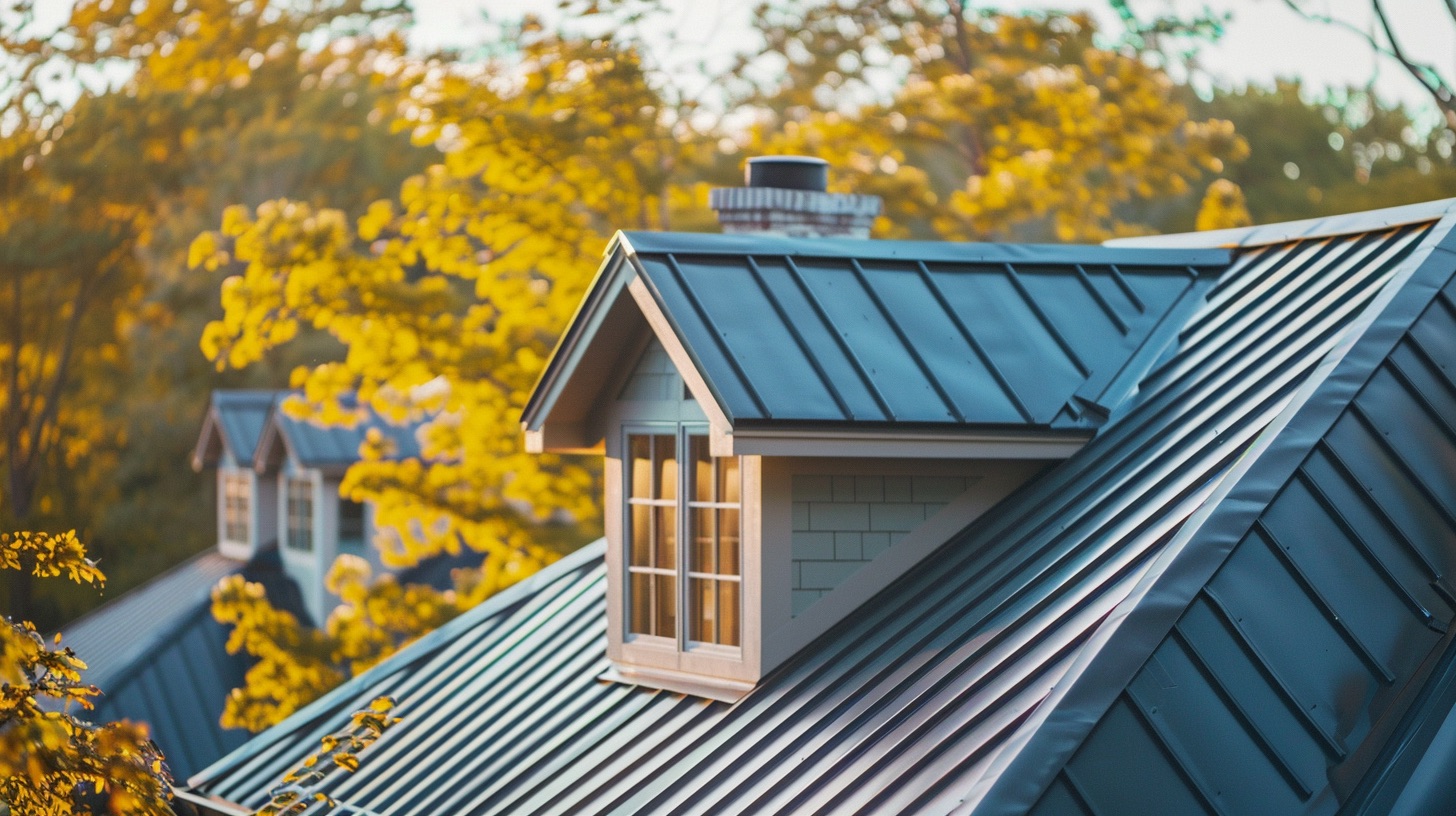
Metal roofing refers to a roofing system composed of metallic materials or tiles. It's a highly resilient, hard-wearing, and practical roofing solution that lasts considerably longer than many traditional roofing materials. From steel to copper, zinc to aluminum, various metals can be used in the production of metal roofs. Each one provides a distinct combination of benefits related to durability, appearance, and eco-friendliness.
Types of Metal Roofing
Steel Roofing
Steel is an incredibly tough and long-lasting material, making it an excellent option for residential and commercial properties. Coated with a zinc layer and sealed with a paint-like coating, steel roofing is impervious to rust and can withstand the harshest weather conditions.
Aluminium Roofing
Aluminium is lightweight, resistant to corrosion, and doesn’t rust, making it extremely durable. It’s also a great heat reflector, which can help to keep your home cool in the summer.
Copper Roofing
Copper delivers a unique appearance and is often chosen for its aesthetic appeal. It’s also a very durable material, resistant to corrosion, and is recyclable, making it an environmentally friendly option.
Zinc Roofing
Zinc metal roofing is a viable option if you’re looking for a roof that offers longevity and is easy to mold into various roof designs. Also, it’s a very sustainable and recyclable material.
Benefits of Metal Roofing
Longevity
-
Metal roofs can last from 40 to 70 years or more depending on the material you choose, nearly twice or thrice as long as traditional asphalt roofs.
-
They are resistant to cracking, shrinking and eroding, making them highly durable, even in extreme weather conditions.
Energy Efficiency
-
Metal roofs reflect solar heat, reducing cooling costs by 10-25%.
-
Darker colored metal roofs can heat faster in winter, aiding in snowmelt and reducing heating costs.
Environmental Impact
-
Most metal roofing materials are highly recyclable, and some are made from recycled materials, reducing waste that goes to the landfill.
-
Unlike asphalt shingles, metal roofs don’t release harmful toxins when they are heated by the sun.
Safety
-
Metal roofs won’t spark and ignite into flames during a wildfire or lightning strike.
-
They are resistant to strong winds, heavy snow, hail, and rain, providing superior protection for your home.
With a variety of options available and numerous benefits, metal roofing is becoming an increasingly popular choice amongst homeowners. Its durability, sustainability, and energy efficiency make it a worthy long-term investment. Choosing to invest in a metal roof could result in significant energy savings while also contributing to a more sustainable environment. If you're looking to install a roof that offers longevity and performance, metal roofing should be a top contender.
Frequently Asked Questions About Metal Roofing
What Materials Are Most Commonly Used For Metal Roofing?
There is a wide range of materials commonly used in metal roofing systems, including aluminum, steel, copper, zinc, and tin. Each of these materials has its unique characteristics and advantages, allowing you to choose one based on your specific needs and preferences.
Does A Metal Roof Require Frequent Maintenance?
No, one of the great benefits of metal roofing is that it requires less frequent maintenance than other types of roofing. Unlike other materials, it is resistant to mold, rot, and damage from insects. However, it is always a good idea to get it inspected periodically to ensure there’s no damage that might need repairs.
How Long Can A Metal Roof Last?
Quality metal roofs are incredibly durable and have a lifespan of 40 to 70 years, on average, depending on the type of metal used. With proper maintenance, some metal roofs have been known to last significantly longer than this time period.
How Does A Metal Roof Stand Up To Extreme Weather?
Metal roofs are often preferred in regions with harsh climate conditions because of their superior durability. They can withstand extreme weather conditions like heavy snow, high winds, and hail. They are also highly resistant to fire.
Does A Metal Roof Attract Lightning?
No, a metal roof does not increase the risk of lightning striking your home. While metal does conduct electricity, lightning is not attracted to it. In fact, a metal roof can actually help disperse electrical energy if your home is hit, making it safer than other types of roofs.
Is A Metal Roof Energy Efficient?
Yes, metal roofs are energy efficient. They can reflect solar radiant heat, which can reduce cooling costs during warm months. Some forms of metal roofing can also offer insulation benefits, further aiding in energy conservation.
Can I Install A Metal Roof Over My Existing Roof?
It's possible in some cases to install a metal roof over an existing roof. However, this depends on the condition of your current roof, local building codes, and other factors. It's highly recommended to consult with a trained professional before making this decision.
Are There Different Styles Of Metal Roofing?
Yes, metal roofing comes in a wide variety of styles, colors, and finishes. You can choose from options that mimic other materials like slate, shingles or clay tiles. This allows you to tailor the appearance of your metal roof to your specific aesthetic preferences.
Is Metal Roofing Noisier During Rain Than Other Types of Roofs?
No, modern metal roofs are typically installed with a solid sheathing that effectively reduces noise from rain, hail, and other outside influences. But, it's always a good idea to discuss this aspect with your roofer if noise is a major concern for you.
What’s The Cost Of A Metal Roof Compared To Other Types?
While the upfront cost of a metal roof can be higher than other materials, you need to consider its long lifespan and lower maintenance costs. Because of its durability and minimal maintenance requirements, a metal roof can often be more cost-effective over time.
Pros of Metal Roofing
Longevity and Durability
Metal roofing is known for its impressive durability and longevity. This roofing material can withstand harsh weather conditions such as heavy rains, high winds, snow, and hail. This makes metal roofing ideal for regions with extreme weather patterns. Additionally, a metal roof can last up to 70 years, which is significantly longer compared to traditional asphalt shingle roofs that last around 20 years. This reduces the overall repair and maintenance costs in the long run.
-
Durability: Metal roofs are highly resistant to rot, mildew, insects, and fire.
-
Longevity: The life expectancy of a well-installed metal roof may exceed 50 years
Energy Efficiency
Metal roofs have high solar reflectance and thermal emittance properties, allowing them to reflect solar heat away from your home. This results in cooler indoor temperatures during summer, which decreases the need for air conditioning, ultimately reducing your energy costs.
-
Solar reflectance: Metal roofs can reflect more solar radiation than an asphalt roof, which absorbs and holds heat.
-
Thermal emittance: Metal roofing gives off a large portion of the absorbed heat, helping to keep your home cooler.
Eco-friendly
Metal roofs are environmentally friendly. They are typically made from recycled materials and can also be recycled at the end of their life. This prevents waste from ending up in landfills, making metal roofing a sustainable choice.
-
Recycled materials: Many metal roofs contain between 25% and 95% recycled content.
-
End of life recycling: Unlike other roofing materials, metal roofs are fully recyclable after use.
Cons of Metal Roofing
High Initial Cost
One of the main downsides of metal roofing is its high initial cost. It is more expensive than traditional roofing materials such as asphalt shingles or tiles. This may deter homeowners looking for a quick, affordable roofing solution. However, the longevity and durability of a metal roof can make it a cost-effective investment in the long run.
-
Initial cost: The cost of metal roofing materials and installation can be two to three times higher than other roofing options.
-
Long-term savings: Despite the higher initial cost, savings from reduced maintenance and energy use can offset the cost over time.
Noise
During heavy rain or hail, metal roofs can be louder than other roofing materials. However, this can be mitigated to an extent using more insulation or solid plywood sheathing during installation.
-
Noise level: Some homeowners find the sound of rain on a metal roof to be loud, especially during a heavy downpour.
-
Solutions: Additional insulation or sheathing can help reduce the noise.
Expansion and Contraction
Metal roofing materials expand and contract with changing temperatures. If not properly installed with fasteners that allow for movement, this can cause the panels to loosen over time.
-
Metal movement: Changes in temperature can cause the metal to expand and contract, which might loosen the panels.
-
Installation: It's crucial to have a metal roof installed by professionals experienced in dealing with this issue to ensure longevity.
Summary
Choosing metal roofing is one of the best decisions one can make when it comes to home upkeep. Not only is it durable and long-lasting, but it also adds a sleek aesthetic to any home or building. Considered an eco-friendly alternative due to its recyclable materials, it's a choice that benefits both your home and the environment.
Metal roofing is considerably more resistant to adverse weather conditions, including hail, rain, and strong winds. With proper installation and maintenance, it can last for about 50 years, certainly a worthwhile investment. Plus, it comes in a variety of styles and colors, easily customizable to match any architectural design.
A final point to remember about metal roofing is the capacity to save on energy costs. Its reflective surface keeps homes cooler in the warm weather, reducing the reliance on air conditioning. Likewise, it's a fire resistant material, adding peace of mind when it comes to safety. So, if you're looking for a roofing material that offers durability, versatility, and simplicity, metal roofing hits the mark.
About US Quality Construction
Welcome to US Quality Construction of Kansas City, MO - a trusted name when it comes to remodeling, construction, and renovation services. Brimming with Midwestern values and a determination to deliver the best, our team is dedicated to providing quality workmanship and outstanding customer service. Our commitment lies in creating a tangible difference in your residential or commercial spaces, leaving you with a product you're proud to show off. No matter how big or small your project is, we're here to transform your vision into reality.
Tags: Metal Roofing, Home Improvement, Roofing Materials,
